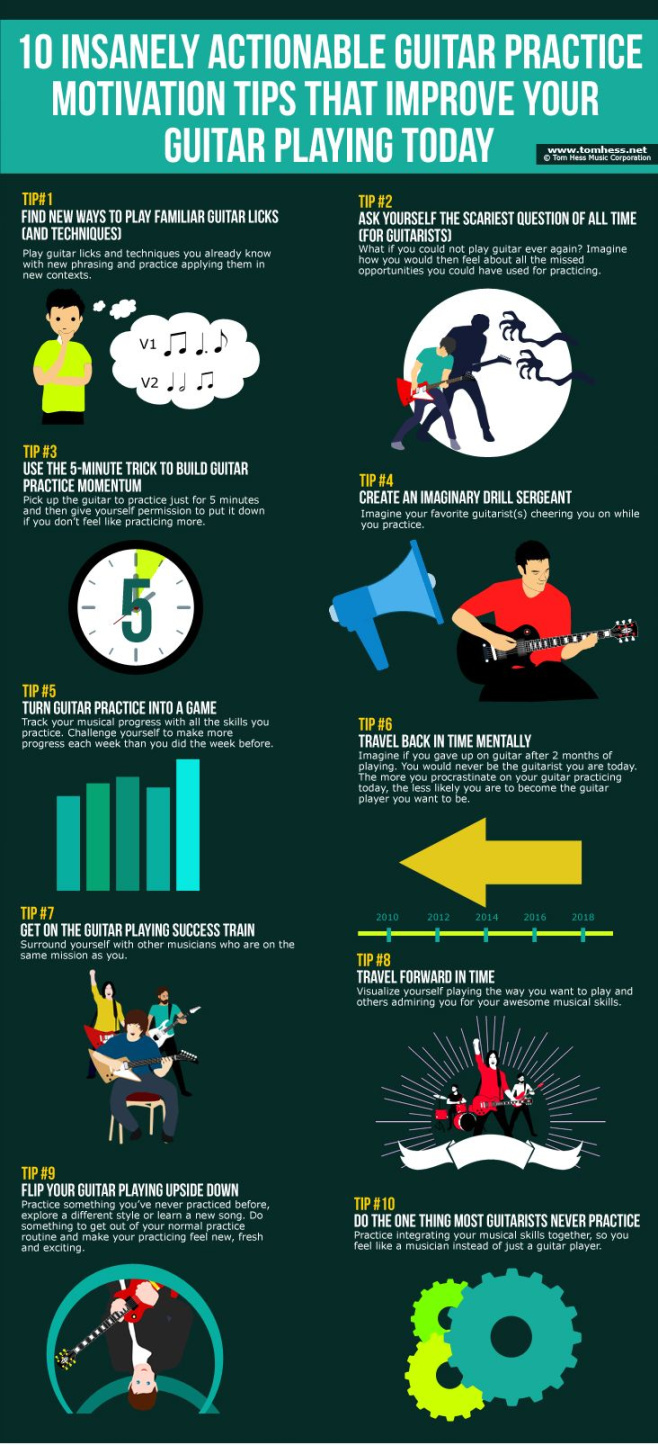—
Guitar Practice Tips: Level Up Your Playing Without Losing Your Mind
So, you’ve got a guitar. Maybe it’s a dusty old acoustic, a sleek electric, or something in between. You’re ready to shred, strum, and generally make some sweet music. But, like, where do you even start? Practicing guitar can feel like climbing a mountain with a slippery rope, especially when you’re just getting started. Don’t worry, we’ve all been there. Let’s break down some chill, practical tips to make your practice sessions actually productive and, dare I say, even enjoyable.
Set Realistic Goals: Don’t Try to Be Hendrix Overnight
Look, we all dream of playing like our guitar heroes. But trying to learn “Eruption” on day one is a recipe for frustration. Start small. Maybe your goal is to learn three basic Chords this week, or nail that simple riff you like. Breaking down big goals into smaller, manageable chunks makes the whole process way less overwhelming. Plus, ticking off those smaller goals gives you a nice little boost of accomplishment, which is always good.
Consistency is King (or Queen): Little and Often Wins the Race

You know that saying, “practice makes perfect”? Well, it’s kinda true. But more importantly, consistent practice makes progress. Even just 15-20 minutes a day is way better than a marathon three-hour session once a week. Your fingers need time to build up calluses and muscle memory. Those short, regular sessions help your brain and muscles remember what you’re doing.
Warm-Up: Treat Your Fingers Like Athletes
Before you dive into the hard stuff, warm up those fingers. Just like athletes stretch before a game, guitarists need to get their hands ready. Some simple finger exercises, like scales or chromatic runs, can make a huge difference. You’ll avoid injuries and play smoother. Plus, it’s a good way to get into the right mindset.
Use a Metronome: Your New Best Friend (Even if You Hate It)
Yeah, I know, the metronome can be annoying. But it’s essential for developing good timing. It keeps you honest and shows you where you’re rushing or lagging. Start slow, and gradually increase the tempo. You’ll be surprised how much tighter your playing becomes. Think of it as your rhythm buddy, keeping you on the beat.
Focus on Fundamentals: Build a Solid Foundation
Don’t skip the basics! Learning chords, scales, and basic strumming patterns might not be glamorous, but they’re the building blocks of everything else. Spend time getting these fundamentals down solid. It’ll make learning more advanced techniques way easier down the line. Plus, knowing your basics gives you a solid platform to build on.
Listen and Learn: Train Your Ear
Playing guitar isn’t just about moving your fingers. It’s also about listening. Train your ear to recognize chords, melodies, and rhythms. Try playing along with your favorite songs, even if you just pick out the basic chords. You can use ear training apps or online resources to help you develop this skill. You’ll be able to hear more and play better.
Record Yourself: The Brutal Truth (But in a Good Way)
This one can be a bit scary, but it’s super helpful. Record yourself playing. You might cringe at first, but it’s the best way to identify areas where you need to improve. You’ll hear things you don’t notice while you’re playing. It’s a reality check that helps you focus your practice.
Learn Songs You Love: Keep It Fun
Practice shouldn’t feel like a chore. Learning songs you actually enjoy makes the whole process way more fun and engaging. Pick songs that are challenging but not impossible. You’ll be more motivated to practice if you’re playing something you love. It’s about keeping the passion alive.
Take Breaks: Avoid Burnout
Guitar practice is a marathon, not a sprint. Don’t overdo it. Take regular breaks to stretch, relax, and give your hands a rest. Burnout is real, and it can kill your motivation. It’s okay to put the guitar down and come back to it later.
Find a Community: Learn From Others
Connecting with other guitar players can be a huge boost. Join a local jam session, take lessons, or find online forums and groups. Sharing tips, asking questions, and playing with others can give you new perspectives and keep you motivated. You can learn a lot from other people’s experiences.
Stay Patient: It Takes Time
Learning guitar takes time. There will be days when you feel like you’re not making any progress. Don’t get discouraged. Everyone goes through plateaus. Keep practicing, and you’ll eventually break through them. Patience is key.
Conclusion
Ultimately, guitar practice is about consistency, patience, and a bit of fun. Don’t get bogged down in trying to be perfect from the get-go. Set realistic goals, focus on the fundamentals, and most importantly, enjoy the process. By incorporating these tips into your routine, you’ll see noticeable improvements in your playing. Remember, it’s a journey, not a race. So grab your guitar, find a comfy spot, and start making some music. You’ve got this!

